This week marks Occupational Health Awareness Week

The most commonly used figure quoted for workers who have access to occupational health services is 45%,. Scottish Hazards disputes this figure as it is based on the basic provision and not a comprehensive package of measures designed to provide the best chance of workers retaining work when faced with health challenges, particularly those associated with the ageing workforce and those with underlying health conditions and disabilities.
Many years ago the HSE carried out research and suggested if a wider definition of occupational health was used, including providing medical advice on job retention and vocational rehabilitation, then fewer than 5% of UK workers could access the range of services Scottish Hazards believes is required for workers to have confidence occupational health is there to help, and not to sanction.
It is important to recognise any occupational health provider will give an opinion on a worker’s capacity to return to, or remain in work when faced with ill health, whether the ill health is related to work or otherwise, they are not decision makers. Occupational health professionals use their professional judgements to assess a worker’s capacity to undertake the task they are contracted to do or, if unfit to do so at the time of the referral, what reasonable adjustments the employer might make to facilitate a sustainable return to work. Occupational health is only one source of advice, employers should ensure they also consider the views of the workers own GP and any specialists the individual may have been referred to treat, or help manage their condition.
Unfortunately, this does not always happen and occupational health reports are the sole reference for human resources and line managers when taking decisions on employees futures, a decision that may lead to their dismissal.
Very few workers have free access to occupational health provision, in the sense they cannot access the service without the knowledge of their employer. This can clearly be a barrier, as the gatekeeper to accessing advice may be also be the cause of the problem.
Occupational health provision is a free market economy, services are periodically retendered and employers are the sole arbiter of who gets the business. Scottish Hazards believes that workers should be consulted on who provides provision, and what is provided. In workplaces where trade unions are recognised the arguments for consultation are stronger, regulation 4(a) of the Safety Representatives and Safety Committees Regulations places an obligation on employers to “consult on the introduction of any measure at the workplace which may substantially affect the health and safety of the employees the safety representatives concerned represent”.
If employer’s are retendering for new services that impact on the range of intervention and services provided then there is potential for such changes to affect the health and safety of members, particularly if cost cutting is behind the decision to retender.
Occupational health has a critical role to play in Scotland’s Fair Work Agenda and creating a sustainable economy. This will be difficult to achieve with costs of occupational ill health and injury running at £1.9 billion annually (and increasing), unless employers become more transparent on how they use occupational health, using it to positive affect rather than negative. Employers need to make occupational health visible in the workplace and encourage their employees to engage with the provider. Employers should work with their employees and occupational health provider to develop services based on needs of the workforce and not just what the employer is willing to provide.
Around half the cost burden of work related ill health and injury falls on the sick worker, the remainder is split between the state and employers. Investment by the state and employers not only has the potential to reduce the burden on sick and injured worker while at the same time reducing the burden on the state by reducing benefits in payment and saving on employers through increased productivity and a healthier and happier workforce.
Scottish Hazards also believes the UK and Scottish Governments have to invest in occupational health, mainstreaming occupational health into our NHS, including providing access to occupational health advice and interventions where employers do not provide services.
The focus on reducing economic inactivity needs to shift from a desire to reduce welfare spending as the prime motivator, to creating work environments that are healthy, safe and fair. Trade unions as the most effective employee voice and good transparent occupational health services are crucial to achieving this.
Ian Tasker is CEO of Scottish Hazards and a member of the Scottish Occupational Health Action Group.

Leave a Reply
You must be logged in to post a comment.